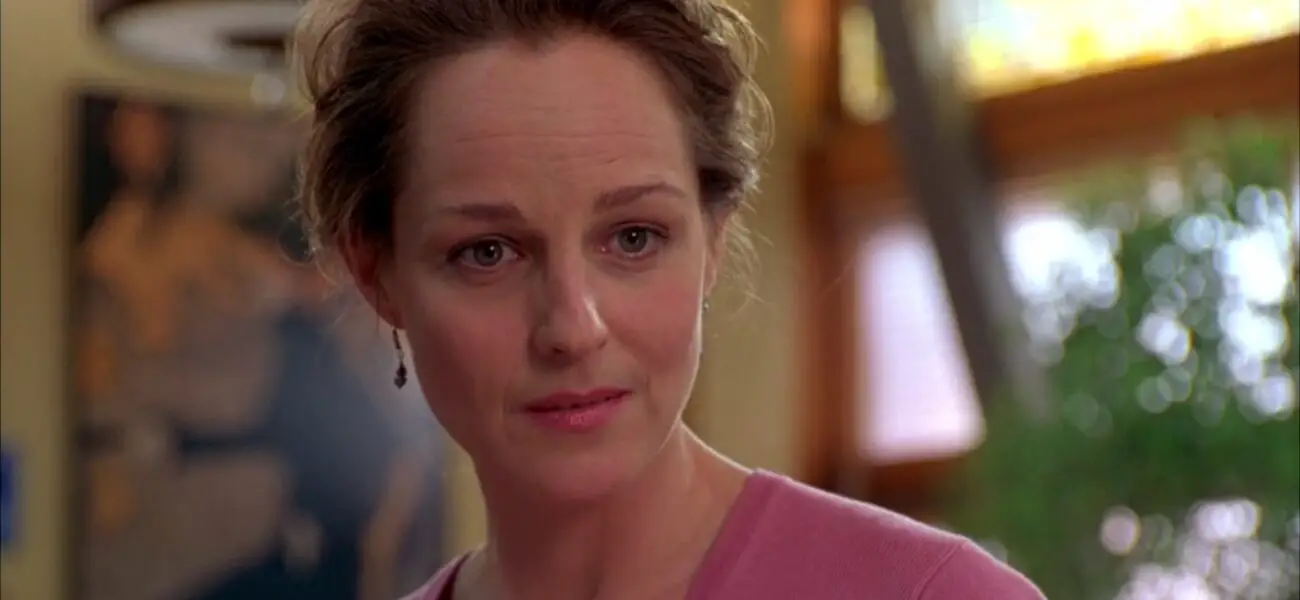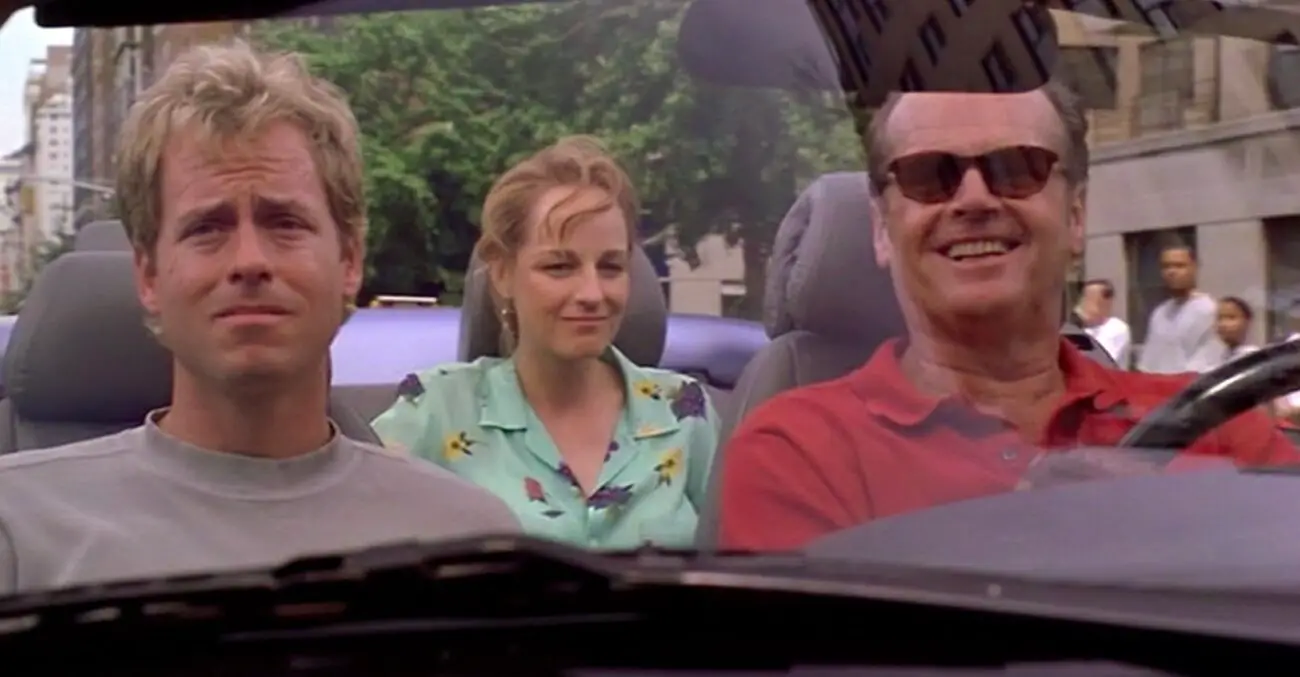Writer-director James L. Brooks’ 1997 film As Good as It Gets is still a fine movie 25 years after it premiered in theaters. It’s very much of its time; however, there is still plenty to appreciate.
In the 1997 Fall Movie Preview issue of Entertainment Weekly, the film was titled Old Friends. Brooks had this to say about that:
“Nobody in this movie has an old friend…[the title] just doesn’t say it for me.”
There were alternate titles, such as Rock Bottom and The Bright Side of Life, but Brooks stuck with Old Friends because he couldn’t think of a better one.
Thankfully, we got As Good as It Gets, taken from a line in the middle of the film when Jack Nicholson’s Melvin Udall exits his psychiatrist’s office, turns to the patients in the waiting room, and asks them, “What if this is as good as it gets?” This title fits the film, given how the three leads don’t see things getting better for themselves until they start helping one another out.
Things can always appear to be just good enough. There’s a reason why the cliché “the grass is always greener on the other side” exists. Without proper perspective, life is what it is. For some, Melvin Udall lives a good life as a prosperous writer who lives alone in a fancy New York apartment. For others, Melvin is a racist, a homophobe, a germophobe, and a sexist asshole. Still, for others, Melvin needs help, whether it’s his medication or being willing to allow people into his life (or both).
Having Melvin ask if life is as good as it’s going to get is important because I believe asking a question like that is essential in realizing that things can get better.

At the beginning of the film, Melvin seems baffled at the idea that Helen Hunt’s Carol Connelly would miss work for any reason, let alone because her son is sick. We can be literal about this and point to him not taking his medication as a reason for his actions. However, it’s more than that. Melvin is perfectly fine living his life alone, as long as things are exactly the way they’re supposed to be. Carol should be at work to serve him, and, of course, no one should ever bother him while he’s writing (something I sympathize with, actually).
Regardless, Carol does miss work, so Melvin decides to help her out with a doctor who is fully paid for. Also, when Greg Kinnear’s Simon Bishop ends up in the hospital following a robbery and an assault, he reluctantly takes in Simon’s dog. And, boy, what a dog. Clearly, it’s the best performance in the film, which is saying something. (I’ll get to the performances soon.) I just love all of Verdell’s close-ups.
The point is, though, sometimes we are active in the changes in our lives. If we want something, we work to get it. Other times, change begins from the outside. Melvin didn’t set out to change, but Carol and Simon (and by extension, Simon’s dog) put him in the position to change himself.
For these three, things were not as good as they were going to get. During the second half of the film, as they make their way to see Simon’s parents, they bond, they grow, and each realizes how much better their lives can be.
At this point, Carol’s life is already better because of Melvin’s help with her son, but the bond she makes with Simon frees her from the drudgery of her life as a waitress barely making ends meet. Carol is more than a waitress or a mom. She can be free and sexy, such as when she poses nude for Simon.
Speaking of which, that scene ends up showing Simon that things can get better, too. After spending the majority of the film in a kind of depression, uninspired to make art again, and also barely making ends meet, his bond with Carol reignites something in him.
Sure, Melvin blows it spectacularly with Carol, but he got her and Simon together. That’s a good thing. These two needed each other. Heck, he drove Simon to see his parents in the first place. He even had mix CDs ready to go for different occasions! And as we see when they return, Melvin has had Simon’s things moved to his apartment, since Simon’s financial instability has cost him his apartment on Melvin’s floor.
Melvin has changed for the better. In a sweet moment, Simon tells Melvin he loves him, and if we weren’t already sold concerning Melvin’s growth as a person, this line seals the deal:
“I tell you, buddy… I’d be the luckiest guy alive if that did it for me.”
All that’s left, of course, is Melvin making good with Carol, which of course he does. This is a feel-good movie, after all. We’re meant to believe that things can get better. If they can for Melvin, Carol, and Simon, we’ll be okay, too.
That was in 1997. 25 years later, do I buy that? Yeah. I do.

Sure, much of what Melvin says in the movie would get anyone “canceled” in today’s world, but what he said was still messed up in 1997. Would a cis actor like Greg Kinnear still play Simon if As Good as It Gets was made today? Maybe, but thankfully, an actual gay actor would most likely play a gay character in a movie.
This is also a very white movie. Aside from Cuba Gooding, Jr., there’s not a lot of color. Like Melvin’s statements and Kinnear playing a gay man, seeing very few minorities represented in As Good as It Gets was par for the course in mainstream film in 1997. Nowadays, you better believe one of the three leads would be another ethnicity or race.
None of this is to take anything away from Brooks’ film, though. This movie is excellent, from the writing to the performances. Nicholson takes a character who, on paper, could be seen as pretty despicable, specifically in the first half of the film. He elevates Melvin with a sense of off-beat charm. Even when I hate what Melvin says or does, I don’t hate him. He’s clearly a complicated fellow, and Nicholson nails the mannerisms and speech of someone with personality issues.
Helen Hunt and Greg Kinnear are great, too. I don’t think I ever appreciated just how heartbreaking Hunt’s work is here until rewatching As Good as It Gets recently. Maybe that just comes with growing older and accumulating more life experience. Kinnear has never been better, and I’m always up to seeing Kinnear in anything. He can play an arrogant jerk like no one else, but he can also play empathic characters like Simon to a beautiful degree.
As Good as It Gets is a film that relies almost entirely on the writing and the acting. Brooks is smart just to let the actors play the parts he wrote and get out of the way. Even though there are elements that give away the time period, like what I’ve mentioned above as well as the technology of the late ‘90s, there’s a sense of timelessness to the film that I wasn’t expecting.
Time capsules are created with the specific purpose of preserving artifacts from a specific moment in time. That’s what films can do for audiences. They are visual time capsules. As Good as It Gets is no different. Even though its themes and presentation can be seen as timeless, I find it comforting that we’ve moved past having characters say certain things, or for a cis man to play a gay man in a film, or for a female character to fall for a man who treats her kind of horribly for the majority of the film.

After all, Melvin didn’t get a doctor for Carol’s son because it was the right thing to do. He did it so she could serve him at the restaurant. It was selfish. Melvin Udall, as written, is very much a man of his time. In 1997, he could be the hero of his own story, and that story could be seen as the feel-good movie of the year and end up getting nominated for and winning a few Academy Awards.
If this film were made today, we’d get a very different Melvin, and I’m not sure just how much I’d buy his arc. Would he still need medication? Would his behavior be more in tune with the majority of society now? I don’t know. It’d be a different film, though, because it would be a different character.
It’s interesting that Old Friends was nearly the title of this film. It wouldn’t have worked for the story that was told with the characters in it. It does work when I look back on it, though. Melvin, Carol, and Simon are old friends to me. They’re not necessarily the kind I would make now, but I wouldn’t change anything about them.
For our 25th anniversary, it was good to see them again.
Bibliography
- “Old Friends.” Entertainment Weekly, August 1997, 94.




No persons of colour? What about the stereotyped Spanish maid? I see, easily overlooked in this terrible film stocked to the ceiling with stereotypes